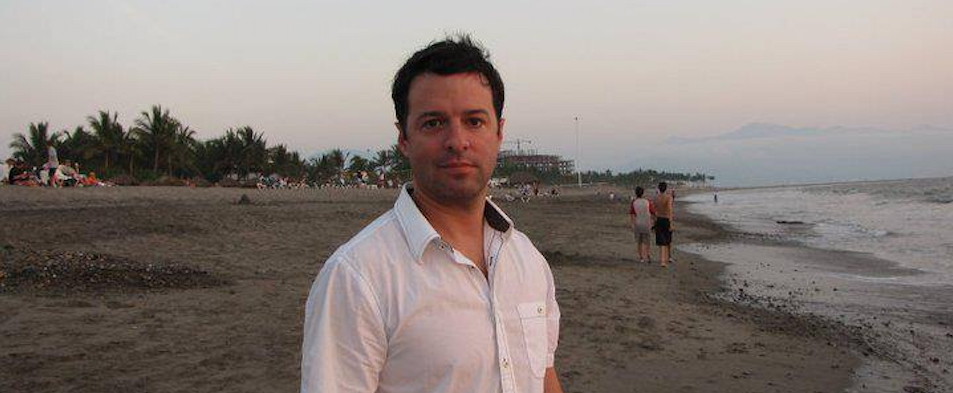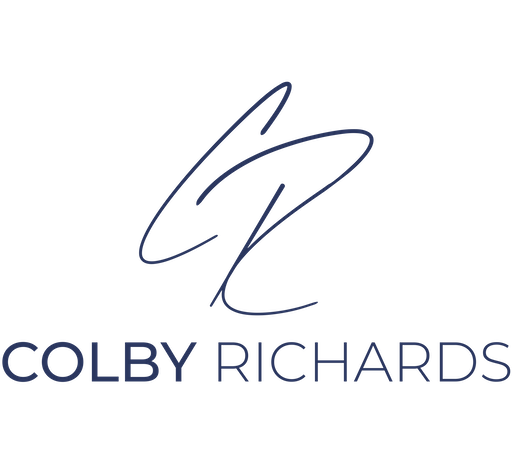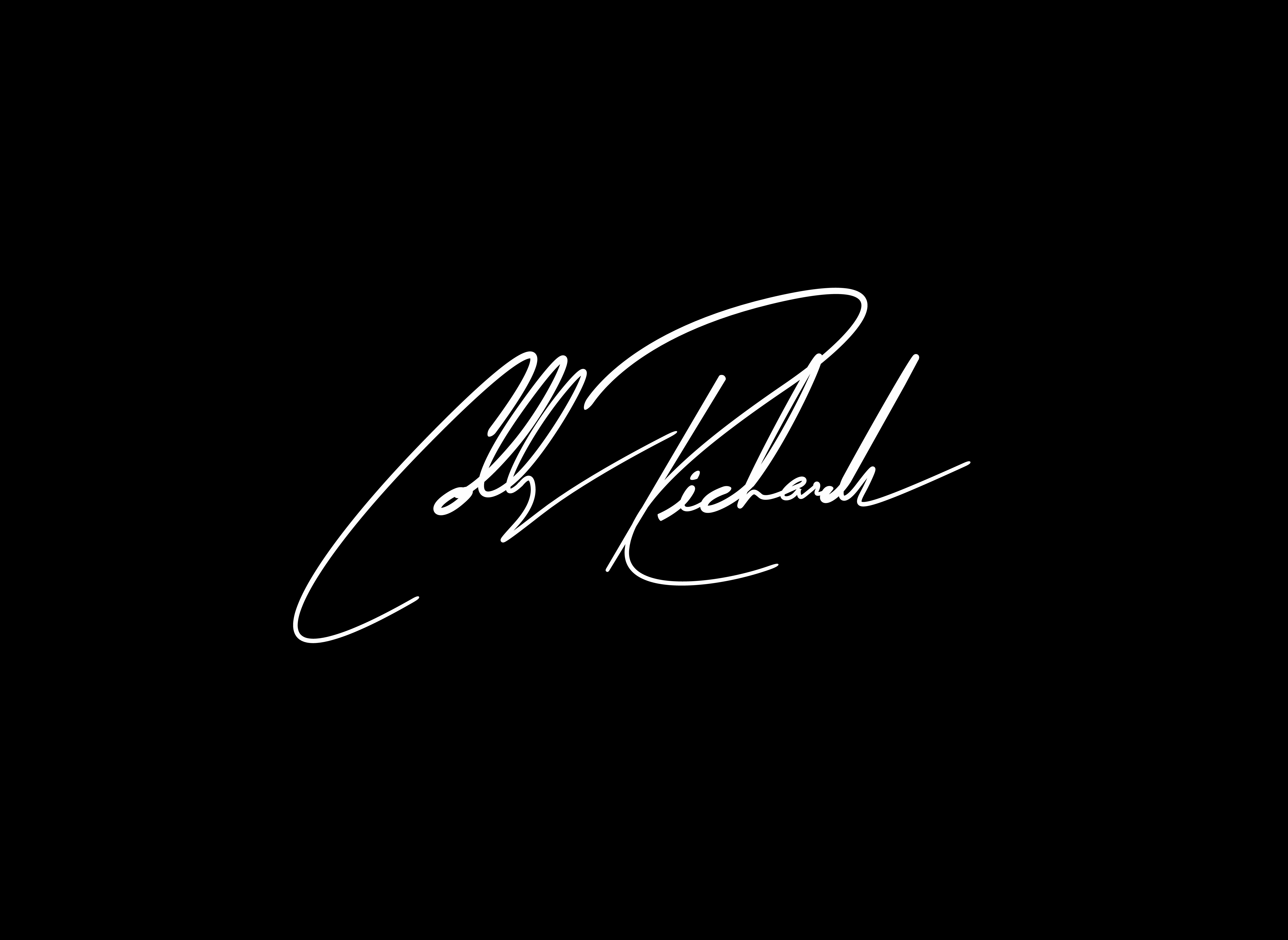
22 Oct A New Beginning
I eagerly walked out of my office on a beautiful Monday afternoon several years ago. I had stayed a bit late to tie up some loose ends and was happy to be on my way out. As I rode the elevator down to the parking garage, my mind was consumed with thoughts of a nice evening with my wife and four young children.
Within five steps of exiting the elevator, I was literally stopped in my tracks by the pain that began shooting down my left arm. While trying to regain my composure, I noticed the pain was radiating up the side of my neck as well. Fearing a heart attack, I audibly responded to the pain with a labored, “No.” No, this couldn’t be happening to me. I have a wife and young children who depend on me. I am in my early 40’s and, though I have an admitted serious sweet tooth, I am quite fit and healthy.
The pain subsided enough for me to walk down to my car. I sat inside and decided that if the pain didn’t go away in the next five minutes, I would drive myself to my medical provider’s urgent care center. Yes, you read that correctly: drive myself. After two minutes, I started the car and began driving. As a nurse later pointed out to me, on the way to urgent care I drove past two hospitals. I laughed and told her ambulances and emergency rooms are for sick people, I was just a guy with a bit of chest pain. Yet, there I was, desperately in need of help, yet stubbornly wearing my attitude of invincibility.
Before you judge me too harshly for not calling an ambulance and making the terrible decision to drive myself to get help, it’s important to understand my background. I grew up hearing my father talk about having chest pains from time to time. I thought it was indigestion or simply part of aging. Everyone gets chest pain once they are in their 30’s, right? Well, of course not, but that wasn’t my frame of reference, so I was evaluating my situation with an unhealthy perspective of what ‘normal’ really is. I underestimated the significance of the warning signs where I passed out while running and doing other intense exercise, thinking I had just pushed it too hard.
For me, this was a reminder that none of us, regardless of our background, should accept by default what we think is normal. Normal often is a word we use when settling for something less than our best selves. There is often a better way, and we should never rely solely upon our experiences or shy away from asking the questions that help lead us to better answers. I had made peace with my perception of normal and nearly paid the ultimate price for it.
Fortunately, when I arrived, there was only one person ahead of me in the intake line. Again, yes, you read that correctly: I stood in line. I will say this: the service you receive when you’re in your early 40’s and tell the staff that you’re having chest pain is really quite exceptional. A button was pressed, a nurse came rushing out with a wheelchair, and I was whisked to a room where I was hooked up to equipment. Within moments, I was told I was in the throes of a major heart attack, and immediately administered medication. I spent the next 24 hours in the hospital, being poked, prodded and tested, only to be released with no diagnosis other than I have an EKG reading that for most people would mean they are having a massive heart attack. The tests confirmed, I had no heart attack and, beyond that, they found nothing wrong. So, I went home, rested a couple of days, and resumed my routine of family, work, and exercising. Little did I know that an EKG reading like mine was a classic symptom of a much bigger problem.
A few months later, my father was having some testing done, and a cardiologist diagnosed him with Hypertrophic Cardiomyopathy, (HCM). Put simply, this is a mostly hereditary disease that causes the septum of the heart to become enlarged, which can result in blood flow blockage and has symptoms of chest pain and fatigue. For those unfamiliar with HCM, this disease is the cause of death for many youth and professional athletes who, seemingly in peak physical condition, drop dead on the field of play.
My father was encouraged to have his children checked and notify his siblings. My doctor agreed I should get checked to see if I had developed my father’s condition. I had tests done, but after not hearing back, I assumed I was in the clear, that was, until I was lifting weights in my garage where I received an urgent call from my doctor’s office advising me to refrain from intense exercise, such as lifting weights, as it could cause a fatal cardiac event based on the results of my test. I quickly ended that workout. The tests showed I had inherited HCM from my father. While most people’s heart wall is .7-1.0cm thick, I was told mine is 1.7cm thick. Upon hearing this I thought, “Ok, that’s not horrendous. I can deal with this.”
A couple of weeks later, I found myself in a place I never imagined: lying in a Cardiac MRI machine at the University of Washington’s Heart Center. That test indicated my heart wall wasn’t 1.7cm thick, but was actually 2.7cm thick. I needed an Internal Defibrillator, medication, and my heart activity would be remotely monitored on a daily basis for the rest of my life. I must stop lifting weights, doing intense exercise, and many other things most people can do.
This was a total shift for me in my life. I had to completely re-evaluate all of the physical aspects of my life, including what I could do with my children. I also had to have them DNA tested immediately to know if they could develop the condition. There was a chance that they hadn’t inherited the defective gene, and I was holding out hope for the best. The blessing of our blended family was that only two of our four children had the potential of having this disease, our youngest son Gabriel, who was two at the time, and our son, Corbin, who was five.
Given that it would take some time to get the DNA test results back, Gabriel’s doctor suggested an echocardiogram to set a baseline measurement in the event anything ever starts to develop. Having lived a very active and athletic youth without trouble, I had no anticipation that this would reveal anything. We all thought this was simply a documentation snapshot, so I went to the office as usual while my wife took our son in.
I will never forget the moment my wife, full of the emotion only a devastated parent knows, called to tell me we wouldn’t need to wait for a DNA test. To this day, I can still hear the ring of the phone, the image of my environment, and the moment of silence before she uttered a word. The phone showed her calling, and her pause to respond to my greeting foreshadowed the news she was about to share. Erasing any doubt, the tell-tale emotion in her voice as she struggled to tell me the diagnosis brought me to tears. All are permanently etched in my mind. At two years old, our son’s heart was already significantly enlarged.
This reality seemed to be an impossibility. This was our son who endured a traumatic birth, yet only 45 minutes later, lifted his head and looked around the room while lying on his stomach in the Neo-Natal Intensive Care Unit. He was well over 9lbs at birth and born with a muscular physique. Within months of learning to walk, he was carrying 10lb bags of sugar around the kitchen and not straining with the task. Now, we learn, he will not be able to participate in competitive sports, will need to take medication for the rest of his life, and we will need to have a portable defibrillator in case he needs it. Gabriel’s name means ‘Strong man’. It suddenly seemed to be a cruel irony.
For some time after, I deeply struggled. My mind knew I did nothing wrong. My emotions felt what I can only describe as a massive sense of guilt for passing this on to my son, even though I had no idea I had it. I struggled with fear and depression for several months which, sadly, are often expressed with anger and other unattractive emotions. What was once a manageable situation, suddenly took on a different appearance when it affected the life of my child and was affecting me as a husband and father. Fear is a liar that will steal your joy and guilt is an assassin that will kill your hope. I was allowing myself to succumb to both.
In truth, none of us can foretell the way our lives will play out, yet we seem inextricably bound to the notions we have of what a great life looks like. Fortunately, my core beliefs are strong, and I kept listening to those I trusted and respected. As I began to make a daily choice to re-immerse myself in life, learning, and studying those who have accomplished much despite their struggles, I found this disease gave me the gift of prioritizing what really matters in life. This was not a death sentence, but a jump-start to a more focused and enriching life.
In the days, months, and now years since that time, I began to see my life become more fruitful and purposeful. I also began to see the blessings and count them first. First and foremost, though Corbin has the gene, he has no symptoms or objective findings of the disease in his heart. Check one for the blessing column.
Though Gabriel has the disease, I am able to teach him to manage his life and focus on what he can do, not on what he can’t. We have adopted the attitude of not worrying about the disease but being thankful that now we know what to look out for. Knowing he has the condition is half the battle. His name bears no irony, rather it couldn’t be more appropriate as he will indeed need to be strong in the ways that matter most in order to achieve whatever he sets his mind to and manage his condition.
My comeback has not only been in personal relationships. As I began to fully re-engage in life, it gave me a new fervor for my business ventures and causes I support. The tangible preciousness of life and time have given me a renewed sense of purpose and focus. I began to earnestly shed my attitude of invincibility and look to leverage my abilities with the knowledge and expertise of others.
The results have been powerful. Since being diagnosed, I became a partner in a company and have guided my division to new growth. I have appeared on television and testified before my state’s legislature as I battled for the property rights of common landowners. I have had the opportunity to author pieces for published works, including this one. Most importantly, I have become more involved in giving to and connecting people with causes that are doing great works for others.
I have been able to accomplish all of this while spending more quality time with my family than ever before. This may seem difficult to believe, until one experiences the freedom found in understanding that it’s not about how much time one has, but how we use the time we have. Understanding that framework enables all of us to take whatever comes our way and transform it from tragedy to triumph. No longer afraid, but wiser and more aware.



Eric Mettler
Posted at 08:22h, 29 OctoberPowerful Colby. Thanks for sharing how you are letting the experience focus your priorities that much sharper. You are an encouragement.
Colby Richards
Posted at 10:22h, 29 OctoberThank you, Eric. I really appreciate your feedback!
Anthon Greenland
Posted at 19:50h, 07 JanuaryWell-stated, Colby. Thanks for sharing such a scary, yet encouraging story. Here’s to you and your family, my friend.
Colby Richards
Posted at 20:09h, 07 JanuaryThank you, Anthon! It’s been a transformative experience.